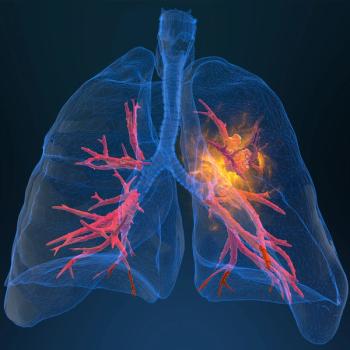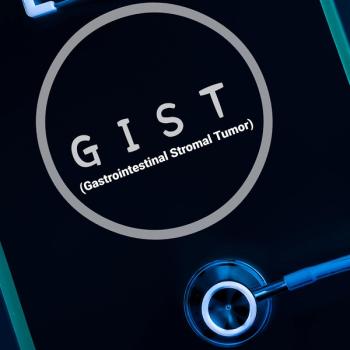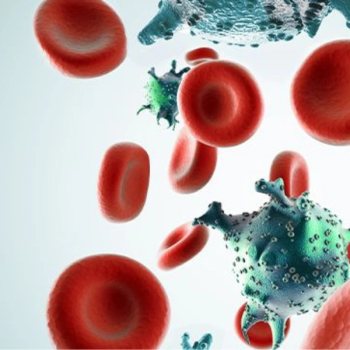
Aidixi plus toripalimab met progression-free and overall survival study end points versus chemo for patients with HER2-expressing urothelial carcinoma.

Spencer, Assistant Editor of CURE®, has been with MJH Life Sciences since 2024. A graduate of Rowan University with a bachelor's degree in health communication, Spencer manages CURE's Facebook, Instagram and YouTube. He also enjoys spending time with family and friends, hiking, playing guitar and rock climbing.

Aidixi plus toripalimab met progression-free and overall survival study end points versus chemo for patients with HER2-expressing urothelial carcinoma.

The addition of Erleada to ADT may provide less benefit in patients with metastatic castration-sensitive prostate cancer and fewer bone metastases.

Treatment with Perjeta, Herceptin and chemotherapy post-surgery led to a significant overall survival benefit in HER2-positive early-stage breast cancer.

Imfinzi plus BCG induction and maintenance therapy showed a statistically and clinically meaningful improvement in DFS for some with bladder cancer.

Biomarker testing is vital for all patients with lung cancer, especially younger individuals who have higher rates of actionable mutations.

Treatment with the Avmapki Fakzynja Co-pack received accelerated FDA approval for previously treated low-grade serous ovarian cancer with KRAS mutations.

Danyelza is now a recommended treatment in NCCN guidelines for relapsed or refractory high-risk neuroblastoma, a type of brain cancer.

Treatment with an Enhertu regimen significantly improved pathologic complete responses for patients with high-risk HER2-positive early-stage breast cancer.

The first patient was dosed in the SKYBRIDGE study assessing peluntamig with Tecentriq for advanced small cell lung cancer and neuroendocrine carcinomas.

An AI model using serial brain scans predicted glioma recurrence in children with up to 89% accuracy, outperforming single-image methods.

In this Q&A, Carly Stafford Dixon discusses her lymphoma journey, recovery with CAR T therapy, and mission to raise support for young adults with cancer.

New results from a breast cancer-related lymphedema study show the importance of measuring fluid and body composition before treatment begins.

Enrollment and initial dosing of PAS-004 at 30 milligrams has begun in three patients with MAPK pathway-driven advanced solid tumors.

A new endoscopic tunneling method, STER, allowed a patient to have a GIST removed without surgery, allowing quicker recovery and fewer complications.

A phase 1 trial has initiated and is investigating treatment with ziftomenib plus Gleevec in advanced GIST following progression on Gleevec.

LUT014, a BRAF inhibitor gel, improved acne-like rashes in patients with colorectal cancer undergoing anti-EGFR therapy, according to UCLA researchers.

CM24 plus Opdivo and chemo improved survival in pancreatic cancer with CEACAM1 biomarkers, supporting a biomarker-driven phase 2b study.

A phase 1 trial evaluating SENTI-202 demonstrated positive preliminary results in treating relapsed/refractory acute myeloid leukemia.

The FDA has granted approval to treatment with Tepylute, a ready-to-dilute version of thiotepa, at 100 mg for breast and ovarian cancers.

INX-315, a CDK2 inhibitor, received FDA fast track designation for patients with CCNE1-amplified platinum-resistant ovarian cancer.

SIRT with 90Y resin microspheres led to durable disease control in patients with gastrointestinal stromal tumor liver metastases resistant to TKI therapy.

Verastem will launch a U.S. phase 1/2a trial of oral KRAS G12D inhibitor VS-7375 after FDA IND clearance, with data to be presented at ASCO 2025.

Decipher Prostate Metastatic Genomic Classifier is now available for patients with metastatic prostate cancer.

The first patient has been enrolled in the ARID II trial evaluating Voro Urologic Scaffold to improve continence after prostate cancer surgery.

In a Q&A, Dr. Nataliya Uboha discussed how difficulty swallowing may signal esophageal cancer, treatment options and ongoing research to improve patient outcomes.


The Oncodetect test detects molecular residual disease across solid tumors using circulating tumor DNA to inform recurrence risk and treatment decisions.

Clinical trials improve care and access to novel treatments for advanced gastrointestinal cancers, says Dr. Michael Pishvaian.

Pausing treatment during vaccination did not improve immunity in patients with chronic lymphocytic leukemia and should not be recommended, a trial found.

An AI model may help identify patients with myelofibrosis at high risk of early death after transplant, according to an expert.